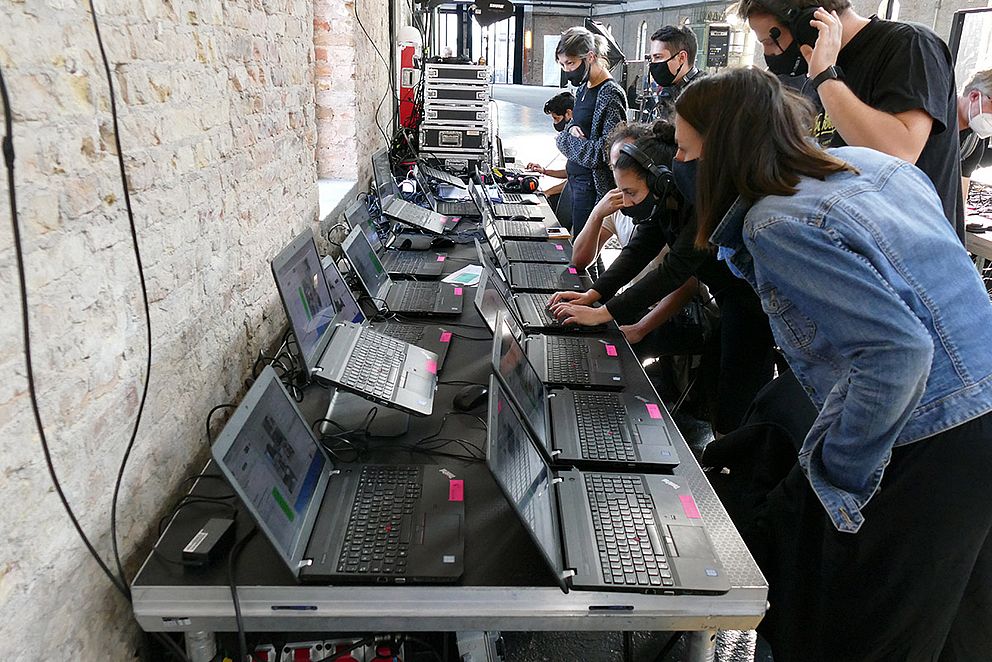Long-term impact for good youth participation

Foto: Michael Scholl / DBJR (CC0)
Auf jedem Laptop läuft ein Thementisch im digitalen Word-Café während der EU-Jugendkonferenz.
Dan Moxon gave an impulse to start the debate. The director of "People Dialogue and Change" was a member of the research team in the 8th cycle of the EU Youth Dialogue and reported that 77 percent of young people in Europe are active in political movements, youth organisations, campaigns and strikes as well as voluntary services at local level. The figures are based on the Euro Barometer. Young people get involved primarily where the framework conditions are right in line with their values, such as a high level of organisational transparency, voluntariness, respectful interaction with one another, youth-friendly conditions, including access, support from mentors and the opportunity to take on responsibility. These conditions are also important criteria for good youth participation. Dan Moxon said: "Participation is a right, not an option". The current situation in the Corona pandemic makes it difficult for young people in particular to claim their right, because they are burdened with worries in everyday life: Unemployment, for example, or health in the family.
At the World Café
At 15 digital tables in the World Café, the long-term potential of good youth participation in the European Union was discussed. And about the central conditions for effective participation of young people in political decision-making processes.
One condition was present on almost all digital tables: Participation for all! Even those with fewer opportunities - physically, spiritually, socialkly - must be able to participate. Independent youth organisations are a prerequisite for this; they must be involved as the voice of youth and lobbyists. Knowledge and opportunities for participation and their development at all levels are crucial: From the local authority to the European Union. Somewhat more difficult to realise and yet a central basis is that politicians lose their fear of losing power and of the influence of young people. Moreover, young people not only need to know that they can participate. The processes themselves must be clear, simple and transparent. High bureaucratic hurdles usually stand in the way. "Politicians must adjust their attitude to take young people really seriously. After all, the opinion of young people is as valuable as the contributions of other interest groups," one group concluded.
The long-term potential of good youth participation in the EU is: trust in the institutions and in politics is growing. Dialogue at eye level between young people and politics can produce innovative solutions to problems. Youth participation leads to a lively policy in the EU. Young people will be more satisfied with political decisions if they can participate in them. "The realisation of effective youth participation will lead to a better democracy in which nobody feels obliged to involve young people anymore because their participation is welcome", a group wrote on the results sheet. Being able to be politically active from a young age will have a long-term positive impact on democracy; because the experience of lifetime democratic participation and taking responsibility for democracy will grow.
Concrete ideas to give impetus to all this: Introducing a youth check and lowering the voting age.
![[Translate to Englisch:] [Translate to Englisch:]](/fileadmin/_processed_/0/c/csm_GR_World_Cafe__c723b2a90c.jpg)